
Asthma is a chronic inflammatory disease of the lungs where the airways become so obstructed the sufferer struggles to breathe. It’s vastly more prevalent in Western societies, and usually develops in childhood. But what do we know about what causes it?

“I felt a sense of dissolving, disappearing completely.” “My body and mind melted and merged with the universe.” “I ceased to exist.” These are excerpts of what I occasionally hear from the students who come to my yoga and meditation classes. For most, these “mind-expanding” experiences are very positive and this is precisely what my students are seeking. However, there are always a few who have a difficult time with “ceasing to exist.”

Picture two different families, each dealing with a diagnosis of dementia in one of its members. In one case, the patient is a retired executive, whose family tries as long as possible to keep the diagnosis secret, relying primarily on professional caregivers and eventually a nursing home. In another case, the patient is a grandmother. As soon as the diagnosis is suspected, her family pulls together, bringing her into their home and surrounding her with affection.
 Eating a diet that is rich in fruits, vegetables, and whole grains and low in added sugar, sodium, and processed meats could help promote healthy cellular aging in women, according to a new study.
Eating a diet that is rich in fruits, vegetables, and whole grains and low in added sugar, sodium, and processed meats could help promote healthy cellular aging in women, according to a new study.
 Our mental and physical well-being suffer from the sonic overload of modern life. Once upon a time, a person could seek out silence and find it. But nowadays, silence has become a rare and elusive thing. Without humans protecting it, quiet appears and disappears like an endangered species. That which used to dominate the earth for miles at a stretch and days on end is on the run.
Our mental and physical well-being suffer from the sonic overload of modern life. Once upon a time, a person could seek out silence and find it. But nowadays, silence has become a rare and elusive thing. Without humans protecting it, quiet appears and disappears like an endangered species. That which used to dominate the earth for miles at a stretch and days on end is on the run.
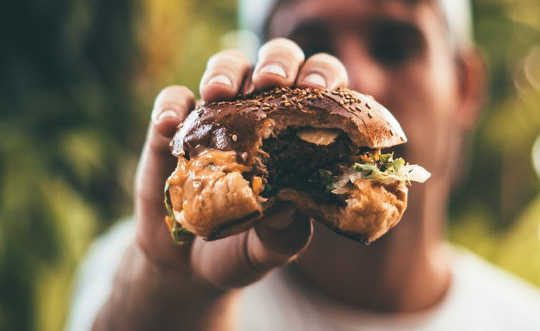
It’s been a busy summer for food-based biotech. The U.S. Food and Drug Administration made headlines when it approved the plant-based “Impossible Burger,” which relies on an ingredient from genetically modified yeast for its meaty taste. The European Union sparked controversy by extending heavy restrictions on genetically modified organisms by classifying them as gene-edited crops.

Iron deficiency is the most common nutritional deficiency in the world, affecting both low- and high-income countries. Although it is an easy problem to fix, it remains unfixed. Our bodies need iron to function. Too little leads to anaemia, limiting the body’s ability to carry and deliver oxygen. Well-known symptoms of iron deficiency include poor concentration, fatigue and mood changes.
- By John Meeker
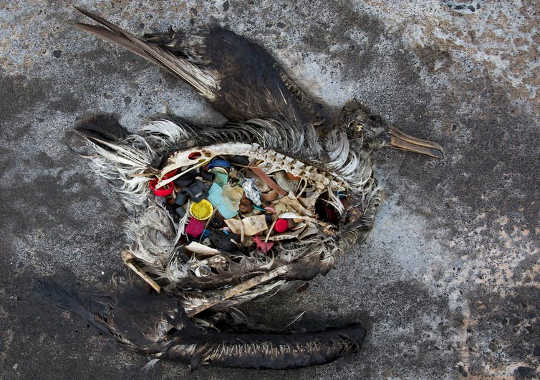
One of the main problems with plastics is that although we may only need them fleetingly – seconds in the case of microbeads in personal care products, or minutes as in plastic grocery bags – they stick around for hundreds of years. Unfortunately, much of this plastic ends up as environmental pollution.

Despite its environmental benefits, using local seaweed for food can be a tough sell. Some think the Dutch have finally cracked the code. “Is seaweed a vegetable?” a wide-eyed child asks a tall man chopping kelp at a “Taste the Nature” market in the Zuiderpark city farm in The Hague. “Well, it has lots of vitamins and minerals,” the cook, Jethro van Luijk, replies.

It is now accepted that sport-related concussion can have a direct and significant effect on the functional status of the brain, but recent research from our laboratory has demonstrated that the heart is also significantly affected. We believe this change is transient and the heart will go back to “normal.”

Almost 40 percent of Americans can expect a cancer diagnosis in their lifetimes. As the number of new cancer cases per year is expected to rise to 23.6 million by 2030 worldwide, people are desperate for answers, turning to alternative therapies that fall outside the typical “slash, burn, poison” treatment model. A review of the documentary “The Food Cure,” which follows patients undergoing an intensive and controversial nutritional therapy.

Caffeine is our favourite drug. But if we miss out on our fix, it can be a real headache, in more ways than one. Caffeine is a stimulant. It quickly enters our brain and blocks the (adenosine) receptors that are responsible for dulling brain activity. By blocking the dulling of our brain, we feel a sense of invigoration, focus and subtle euphoria. These feelings can also enhance our performance of certain focused tasks, like driving or staying awake through the whole lecture.
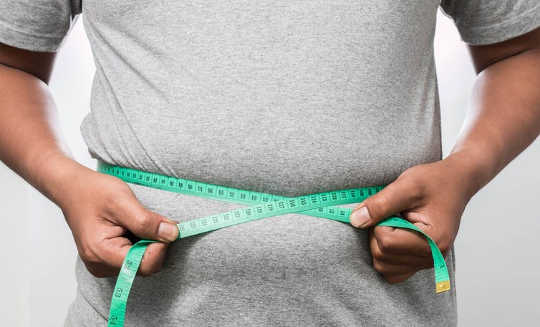
Obesity levels in Australia and around the world are high and rising. This comes at an enormous economic cost for society and individuals, not only in terms of health care and productivity, but also in lost quality and duration of life. Both behavioural economics research and weight-loss trials show that relying solely on Australians to take personal responsibility is doomed to fail, unless governments step in to create environments that promote healthy food and physical activity.
 Hospice and palliative care patients who listen to live music in their rooms as part of their treatment report feeling better both emotionally and physically, a new study reports. They also request fewer opioid-based medications, according to the study.
Hospice and palliative care patients who listen to live music in their rooms as part of their treatment report feeling better both emotionally and physically, a new study reports. They also request fewer opioid-based medications, according to the study.
 In the first of many pending lawsuits to go to trial, a jury in San Francisco concluded on Aug. 10 that the plaintiff had developed cancer from exposure to Roundup, Monsanto’s widely used herbicide, and ordered the company to pay US$289 million in damages. The plaintiff, Dewayne Johnson, had used Roundup in his job as groundskeeper in a California school district. He later developed non-Hodgkin lymphoma. The jury awarded Johnson $39 million in compensatory damages to cover pain, suffering and medical bills due to negligence by Monsanto, plus an additional $250 million in punitive damages.
In the first of many pending lawsuits to go to trial, a jury in San Francisco concluded on Aug. 10 that the plaintiff had developed cancer from exposure to Roundup, Monsanto’s widely used herbicide, and ordered the company to pay US$289 million in damages. The plaintiff, Dewayne Johnson, had used Roundup in his job as groundskeeper in a California school district. He later developed non-Hodgkin lymphoma. The jury awarded Johnson $39 million in compensatory damages to cover pain, suffering and medical bills due to negligence by Monsanto, plus an additional $250 million in punitive damages.
- By Erika Dyck

Psychedelic science is making a comeback. Scientific publications, therapeutic breakthroughs and cultural endorsements suggest that the historical reputation of psychedelics — such as lysergic acid diethylamide (LSD), mescaline (from the peyote cactus) and psilocybin (mushrooms) — as dangerous or inherently risky have unfairly overshadowed a more optimistic interpretation.

Wearing the wrong size bra is not only uncomfortable, it can cause a range of health problems. Research has shown that a lack of breast support often leads to breast pain, which is reported by 50% of women. An ill-fitting bra that doesn’t give the right support can also lead to breast skin damage – usually seen as stretch marks, caused by stretching the skin beyond its recovery point.

A recent study in the Journal of the American Heart Association has led to headlines that will make you rethink your Saturday morning sleep in.Don’t set the alarm just yet. Yes, the researchers found a link between people who usually slept for longer than eight hours a night and their chances of having heart disease or dying prematurely.
 We’re very careful about what our kids eat, but what about the air they breathe?During recent summers, children living on the West Coast of Canada have been breathing some of the most polluted air on record. This is due to seasonal wildfires, which have burned through vast zones of North America and affected even larger areas with their smoke.
We’re very careful about what our kids eat, but what about the air they breathe?During recent summers, children living on the West Coast of Canada have been breathing some of the most polluted air on record. This is due to seasonal wildfires, which have burned through vast zones of North America and affected even larger areas with their smoke.
- By Gina Cleo

Most people who diet will regain 50% of the lost weight in the first year after losing it. Much of the rest will regain it in the following three years. Most people inherently know that keeping a healthy weight boils down to three things: eating healthy, eating less, and being active. But actually doing that can be tough.
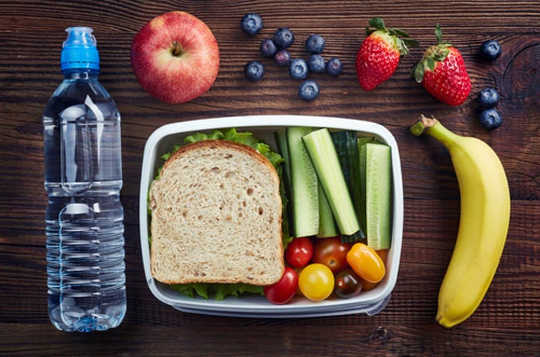 With the school year starting again, it’s time to start to think about the routine of packing school lunches. For many time-pressed parents, this is a formidable task. But it doesn’t need to be.
With the school year starting again, it’s time to start to think about the routine of packing school lunches. For many time-pressed parents, this is a formidable task. But it doesn’t need to be.
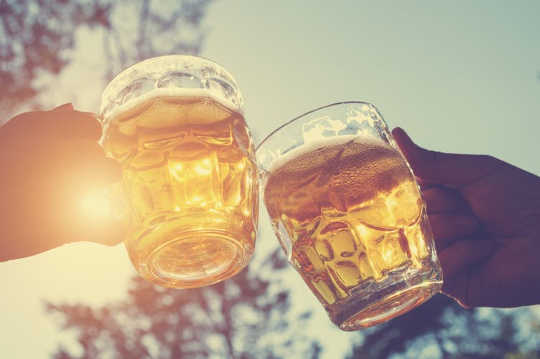
A recent Daily Mail article announced that: “Beer is officially good for you”. The article claimed that beer “reduces heart risk” and “improves brain health”. Even if “heart risk” sounds a bit vague, the news sounds good. But let’s take a closer look at the evidence.

It’s Friday and you’re clocking off, and after a few sleepless nights you want to tuck yourself up early and catch up on all the sleep you’ve lost. But does it really work that way? During sleep our memories from the day are solidified and our brain does a bit of a clean-up sorting through the things we need to hold onto and discard from the day.
















